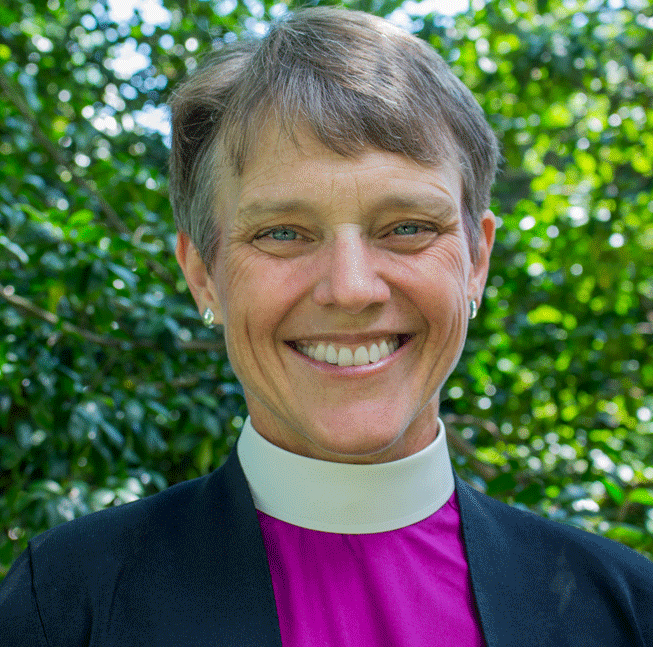Finding Our Joy in the Thriving of Others

Now the boy Samuel was ministering to the Lord under Eli. The word of the Lord was rare in those days; visions were not widespread.
~ 1 Samuel 3:1
This summer I plan to begin a research/writing project on the spiritual dimensions of generativity, which the developmental psychologist Erik Erikson identified as an essential life task of middle adulthood. Erikson defined generativity as the “ability to transcend personal interests to provide care and concern for both younger and older generations.” More broadly, generative persons are those who find meaning and joy in the thriving of others.
I witnessed a beautiful example of generativity in April when our son and his young family came to visit. We went to see his godmother, Gail, who lives in an old country house in Hamilton, Virginia. When our grandchildren hesitantly got out of the car, Gail greeted them warmly, gently introduced them to her dog, and showed them around the property, all the while speaking as if they were the most interesting people she had ever met. Within minutes, they were romping through the yard like old friends.
Children blossom like flowers in the presence of generative elders.
Generativity is also revealed in acts of sacrificial love — consciously letting go of our own wants and preferences or another’s sake. Erikson identified the daily tasks of parenting and grandparenting as generative, but there are many ways we give of ourselves for others. Generativity is not age specific.
Over Memorial Day weekend, my husband and I rode our bikes on the Washington/Old Dominion trail. Every half mile, there was a poster of a young serviceman or woman killed in the Iraq and Afghanistan wars. How many of them died, I wondered, attempting to save the life of a comrade or civilian? I thought of the countless young men and women who choose to put themselves in harm’s way, be it in military service, as first responders, violence interrupters, or advocates for peace and the future of our planet.
As I rode by the smiling photographs, I felt such sadness for those who had died too soon. Is it possible that we ask too much of our young people, placing burdens upon them that rightfully belong to us? In too many situations, younger generations must pay the price for their elders’ lack of generativity.
But therein lies a path for hope, whenever any of us hear God’s invitation to choose the generative path. As elders, generativity includes befriending grief and accepting that we are no longer at the center of life’s drama. How we embody our new, supporting role is one of the most important spiritual decisions of our lives. The alternative, Erikson reminds us, is a life of stagnation.
One of the optional biblical texts for this Sunday offers a beautiful example of generative love. It tells the story of an old priest named Eli to whom a once-barren woman named Hannah had entrusted her son Samuel. This was a difficult time for the religious leadership of ancient Israel. As the text says, “The word of the Lord was rare in those days; visions were not widespread.” Eli was doing the best he could, but he was worried, and he didn’t know when or how God might speak.
One night as young Samuel lay sleeping, he heard someone call his name. Assuming that it was Eli, Samuel got up and went to him. “I did not call you, my son.” Eli replied. “Go back to sleep.” Later that night, Samuel heard the voice again and rose and went to Eli. “I did not call you,” Eli said. “Go back to bed.” When Samuel heard the voice a third time, Eli knew that it was the Lord.
Consider how Eli must have felt when he realized that the Lord had passed him by. He had dedicated his life as a Temple priest; he was the one to whom the people looked for holy guidance. But whatever his feelings of displacement, Eli gently told Samuel, “When next you hear the Lord call, say in response, ‘Speak Lord, for your servant is listening.’” (I Samuel 3)
Eli now understood that he was to help Samuel grow in confidence as a prophet, and he embraced his supportive role with graceful humility. I’m reminded of a similar moment in the life of John the Baptist. “He must increase,” John said of his cousin, Jesus, “while I must decrease.” (John 3:30)
Generativity is the hard-won fruit of the struggle to find our way when much of what had once defined our lives is gone. There is undeniable grief and sacrifice in generativity, but also joy, whenever rising generations find in us the support and encouragement they need to thrive. For those of us who strive to follow Jesus, there is also the affirming and empowering realization that this is what it feels like to love others as he loves us.
Throughout the Diocese of Washington, there are many generative leaders who are my inspiration. This summer, I’d like to begin interviewing some of our remarkable elders. If there’s someone in your congregation who embodies the gift of generativity, please let me know.
Should it be that someone suggests that I interview you, the first thing I will say is thank you. You are helping to make the world, and our church, a place where others can thrive. They blossom like flowers in your presence.
The Rt. Rev. Mariann Budde, Published by the Episcopal Diocese of Washington, May 30, 2024 [Reprinted with permission]
